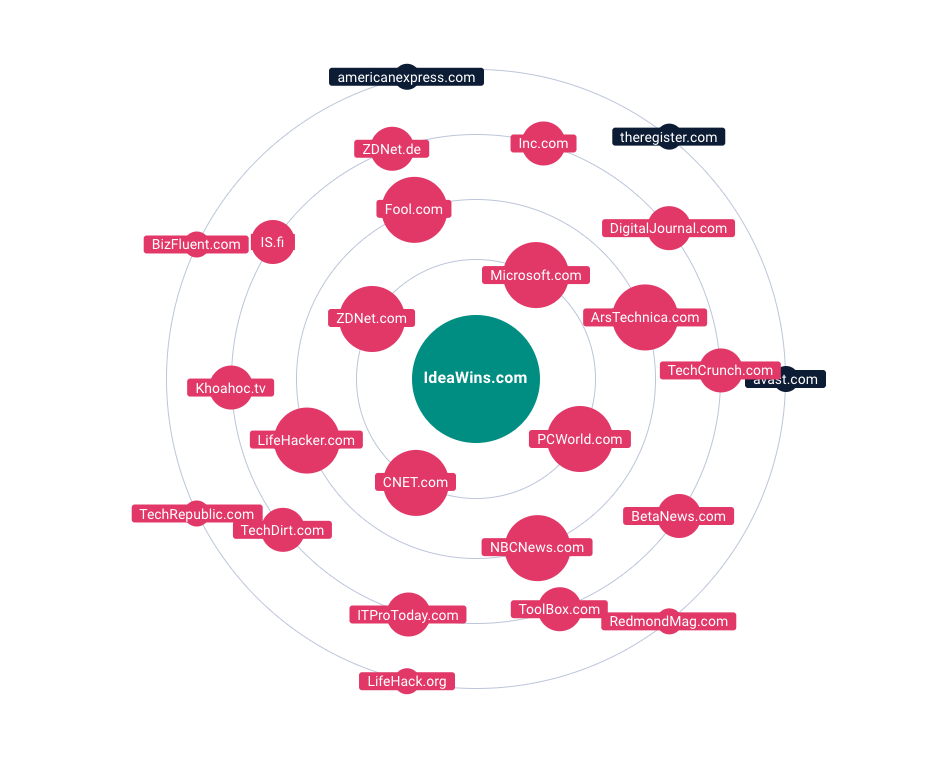Aged domains allow you to skip years of building backlinks to your website. With an aged domain, you can avoid countless hours of cold outreach, save thousands of dollars on purchasing links, secure otherwise unobtainable high-DR backlinks, and boost the authority of your website overnight.
Sound too good to be true? As with everything in SEO, there are no guarantees, and there are risks. But choose an aged domain wisely, and use it correctly, and you could enjoy traffic growth that simply would not be possible without the aged domain advantage.
Due Diligence Services
These firms rely on our M&A expertise



These firms rely on our M&A expertise...



Hire our team to conduct due diligence on your online business acquisition.
Get a 20-page due diligence report jam-packed with insights.
View all services, or choose your business type below:
Video Overview of Aged Domains
What is an Aged Domain?
An aged domain is a previously used domain name that has gained many valuable, high-quality backlinks over several years. Ideally, to distinguish it from an expired domain, an aged domain should have an unbroken record of being online.
There is no defined length of time beyond which a standard domain name suddenly becomes “aged.” And being old is not the only factor that defines an aged domain.
There are four essential attributes of an aged domain. The domain should have previously been owned, it should be several years old, it should not have expired, and crucially, it should have high-quality, otherwise unobtainable backlinks.
A fifth attribute – preferable though not essential – is that the domain name should be brandable.
1. Previously Owned
The first attribute of an aged domain is obvious: The domain needs to have been registered at some point in the past.
If this were not the case, the domain name would be a brand new, fresh domain with no backlinks, no history, and no SEO value.
2. Several Years of History
Having previously been owned doesn’t automatically make a domain name aged.
Just as a bottle of wine has to spend years in the cellar to age in the bottle, a domain name needs to have been online for a long period – usually several years – to accumulate quality backlinks, earn a reputation with Google, and qualify as an aged domain.
3. Never Expired
In addition to previous use and several years of history, an aged domain should ideally have been continuously registered and used in an unbroken chain from the day its first owner purchased it.
This continuous registration and use is the difference between an expired domain and an aged domain.
An expired domain is a domain that was previously used, but then the owner did not renew the domain registration, nobody else bought it, and the domain name was dropped.
An aged domain should ideally have an unbroken history of being registered and used on live websites without any long periods offline.
4. Unobtainable Backlinks
Even if a domain is old and has been online for several years without expiring, it needs quality backlinks to have significant SEO value.
This is the big advantage of aged domains and the reason why you would buy an aged domain rather than register a fresh new domain.
An aged domain should have valuable backlinks that you would not be able to obtain through any other backlinking strategy. Or, at the very least, it should have valuable backlinks that would be extremely time-consuming and prohibitively expensive to build for yourself.
Examples of these kinds of backlinks are links from highly respected, authoritative, and reputable websites, such as CNN, or high DR sites in your chosen niche where you would not be able to simply purchase a link or easily gain one through outreach.
5. Brandable (Preferably)
While not a strict requirement, aged domains should be brandable and have a valuable TLD – preferably .com – whenever possible.
Aged domains often cost significant amounts of money. If you’re going to make such a big investment, you should invest in an aged domain that you can grow into a valuable brand, and that usually means building on a .com.
The Real Estate Analogy
It can be useful to think about aged domains like abandoned real estate.
In real estate, some areas are more valuable than others, and it’s not always possible to build a new property in a desirable area. To own real estate in that area, you must buy an existing property.
In this example, the domain name is the property, and the “desirable area” is created by all the high-value unobtainable backlinks linking to the domain. You can’t build that yourself, but you can buy it.
Aged domains are like abandoned real estate. They are properties in a desirable area (domain names with otherwise unobtainable high-value backlinks) where the previous owner has neglected them, and they have come up for sale.
This is an opportunity for you to buy the aged domain and combine it with quality content (adding value – like renovating a property) to create an improved and much more valuable asset.
Do Aged Domains Help SEO?
Aged domains are proven to help SEO. An aged domain gives a website a ready-made set of relevant, authoritative backlinks, which is a hugely important factor in determining how a website ranks in the search results.
An aged domain can be used to either boost the SEO of an existing website or give a head start to a brand-new website.
In either case, aged domains can help SEO and greatly improve the performance of a website compared to using a fresh domain. You just need to be aware of the risks and use aged domains correctly.
But before we get to the risks and how to use an aged domain, let’s look at the many advantages of using an aged domain to boost your website’s authority and help with SEO.
6 Benefits of Aged Domains
There are six key benefits you can gain from using an aged domain.
1. Start ranking quickly
Fresh domains often take a long time to start ranking on the first page of Google search results. This is frequently blamed on the Google Sandbox, which is supposedly a filter that the search engine applies to new websites.
Whether the Google Sandbox exists has been debated for many years without a conclusive answer. However, what is certain is that a sandbox effect exists, and new sites usually do take longer to rank.
A benefit of using aged domains is that they will often (though not always) bypass the Google sandbox effect and allow sites to start ranking and getting organic search traffic more quickly than a domain that is completely new to Google.
2. Drive immediate traffic
As well as helping sites to rank more quickly in the search results, an aged domain can also drive immediate traffic.
By definition, aged domains have links on popular websites, which will most likely drive referral traffic to the website from day one.
Aged domains have a history and are usually brandable, which means people are likely familiar with the domain and may visit it directly looking for the previously established website.
This combination of existing links and direct traffic can mean that a website built on an aged domain sees visitors as soon as it goes live, which is usually not the case with freshly registered domains.
3. Gain otherwise unobtainable backlinks
The big advantage of building a website on an aged domain – or redirecting an aged domain to an existing website – is that you gain backlinks that you otherwise would be unable to get.
A good aged domain doesn’t just have a lot of relevant links; it has links from highly reputable, high-quality sources – global news websites, for example – that you simply would not be able to gain for yourself through any link-building campaign.
Backlinks are enormously important for SEO and high-quality backlinks will boost your website’s authority and ultimately improve its Google rankings.
4. Save money on building links
It may be counterintuitive to talk about aged domains being a way to save money. After all, an aged domain with lots of high quality backlinks could easily cost thousands – or even tens of thousands – of dollars.
However, despite the initial outlay, it is possible that an aged domain will save you money in the long term.
As well as unobtainable backlinks, an aged domain will often come with backlinks that you might otherwise have had to purchase. Therefore, though the aged domain costs more up-front than a fresh domain, the money you save on purchasing backlinks could equal or exceed what you would otherwise have spent on a link-building campaign.
5. Save time on building links
Building backlinks is a time-consuming process that usually involves searching for relevant sites that may link to your website, contacting site owners, negotiating terms and perhaps agreeing to a fee, or connecting with journalists through sites like HARO.
An aged domain saves you this time, as the domain comes complete with backlinks already in place.
This means there is less urgency to work on building backlinks and you can focus on other priorities, such as creating content, before needing to focus on link-building.
6 . Close the gap to competitors
It’s important to always remember that your competitors are not standing still. They will be building links all the time, and most likely at a faster rate than your new site, as their business is more established.
You could buy a new domain and work on building links, but it will be very difficult – or even impossible – to catch up to a more established competitor.
An aged domain will help you to close this gap and catch up to these competitors, at least to some extent.
The Risks of Using an Aged Domain
There are many benefits to using an aged domain, but there are some risks too.
The three major risks that you take when you buy a domain are:
- Spending significant sums of money with no guarantee of success
- Discovering a Google penalty
- Violating a trademark
The cost of aged domains can be high – often 5 figures – due to the value they offer that can’t easily be replicated on a fresh domain. Prices are also driven up by domain investors and the recent growth in popularity of buying aged domains and building niche websites. However, there is no guarantee of success, so when you buy an aged domain, you risk money without any certainty that the SEO benefits will materialize or be worth the expense.
Another risk associated with aged domains is that the domain could have been penalized by Google. This isn’t easy to determine until you’ve purchased the domain, and by then it is usually too late.
Finally, trademark issues are common with aged domains because the domain has previously been used. While the previous owner has allowed the domain name to expire, their trademark may still be valid. If you build a website on that domain, your site will be in violation of the trademark and you could be opening yourself up to legal proceedings.
Fortunately, most of these risks can be mitigated. For example, you can purchase domains from reputable marketplaces, check a domain’s history at Archive.org, and search for existing trademarks before you purchase a domain.
However, even if you undertake extensive due diligence on an aged domain, it is still important to go into aged domains with your eyes open and recognize that there will always be some risk involved in any purchase.
The Importance of Topical Match
The key point to remember when using an aged domain is that the topic of the aged domain should always closely relate to the topic of your website. This is what we call topical match.
An aged domain’s backlinks will be from sites that relate to a certain topic. For example, if you buy an aged domain that was previously used for an astronomy website, the links you see pointing to the aged domain should be from organizations such as NASA and the European Space Agency, and other astronomy-related websites.
If you’re considering purchasing an aged domain and see that it has links from all kinds of different niches – with no obvious connection to the domain and the website it was previously used for – then this is a huge red flag.
You should always ensure topical match when using an aged domain. For instance, if your website is about dogs, then you should only use an aged domain that was previously used for a website about dogs.
If your existing site, or the site you plan to build on the aged domain, does not closely relate to the previous topic of the aged domain, then you should not redirect that domain to your website.
The closer your aged domain topic matches your website topic, the better. You should therefore think carefully about the topic of your website and really examine aged domains to be certain they are a genuine topical match.
You may think that an aged domain is a good match because it was previously used on a travel website and your website is also in the travel niche. However, if the previous website was about student travel around Europe, and your website is about family vacations in the United States, the domain may not be quite as good a fit as it first appears.
It’s important to look at the domain’s history, backlinks, and the anchor text used in those backlinks to ensure it is a really good fit for your website.
Once your site is established and the aged domain redirects have been in place for some time, you may want to diversify your content into other related areas. It’s ok to do this, but particularly when first redirecting an aged domain, you should be careful to ensure as close a topical match as possible.
Should You Buy An Aged Domain?
You should buy an aged domain if you have the budget and are able to find a domain that is a close match to your new or existing website. As long as you take care to purchase the right domain and implement it properly, then the benefits far outweigh the potential risks. However, as with everything in SEO, there are no guarantees.
There are several marketplaces and tools available to help you find and buy aged domains that meet your requirements.
However, before you dive in and buy an expensive domain name, you must carefully vet any aged domains you are interested in.
A thorough inspection of the domain name before purchasing can reveal problems, allowing you to avoid wasting money and ensure you only buy aged domains that will help, not harm your website’s SEO.
Due Diligence Services
These firms rely on our M&A expertise



These firms rely on our M&A expertise...



Hire our team to conduct due diligence on your online business acquisition.
Get a 20-page due diligence report jam-packed with insights.
View all services, or choose your business type below:











